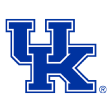
1. UCLA Bruins, 1972 (30-0)
The average -- average -- final score of a UCLA game in 1971-72 was 95-64. The Bruins finished their season 30-0, with just two games decided by single digits (one of which was an 81-76 victory over Florida State in the national championship game). Walton made his debut and averaged a 21-point, 16-rebound double-double for the season. Henry Bibby joined Walton on the consensus All-American first team. Surprisingly, just one opponent tried to hold on to the ball against UCLA in this pre-shot-clock era. Notre Dame hosted Wooden's team in January, and the Fighting Irish attempted just one shot in the first 10 minutes of the second half. The Irish lost 57-32.

2. UCLA Bruins, 1973 (30-0)
Bill Walton cemented his status as one of the greatest college players of all time with 44 points on 21-of-22 shooting in the 1973 title game against Memphis (then known as Memphis State). In a season where the average NCAA field goal percentage was 44.8, Wooden's top three scorers -- Walton, Jamaal Wilkes and Larry Farmer -- shot a combined 57% from the floor. No NCAA tournament opponent came within 10 points of the Bruins.

3. Indiana Hoosiers, 1976 (32-0)
Bob Knight's Hoosiers announced their intentions right at the start of 1975-76, with a 20-point win over No. 2-ranked UCLA in a made-for-TV event in St. Louis. IU was tested in overtime contests in December and early February, but the team appeared to gain strength as the season progressed. By the time the tournament arrived, Indiana was winning its games by an average of 13 points. While Knight's prowess was plain to see at age 35, the Hoosiers were also blessed with elite talent. Kent Benson, Scott May, Quinn Buckner and Bob Wilkerson were all selected at No. 11 or higher in the two ensuing NBA drafts.

4. UCLA Bruins, 1968 (29-1)
Quite possibly the greatest team in NCAA history to not go undefeated, UCLA came up short 71-69 in the so-called Game of the Century against Elvin Hayes and Houston before a crowd of 52,000 at the Astrodome. The loss was avenged with emphasis when Alcindor and the Bruins smashed the Cougars 101-69 in the Final Four. A ban on dunking was instituted across college basketball in 1967-68 in apparent fear of Alcindor's dominance. The prohibition wasn't lifted until 1976-77.

5. San Francisco Dons, 1956 (29-0)
By 1956, the Dons were so dominant they rolled to a second consecutive title despite the absence of future Hall of Famer K.C. Jones. The NCAA ruled Jones ineligible for the postseason because he played one game in 1953-54 before suffering a ruptured appendix. Nevertheless, Bill Russell and San Francisco defeated Iowa by 12 in the title game, becoming the first NCAA champion to finish undefeated. In all, Phil Woolpert's program recorded 60 consecutive wins.



